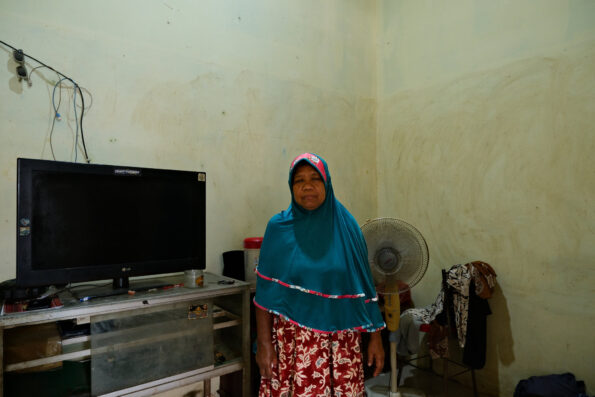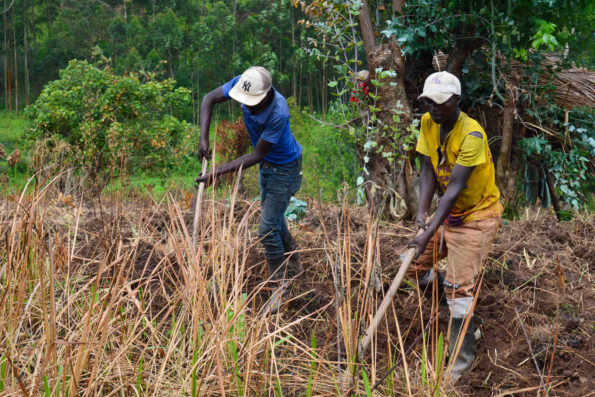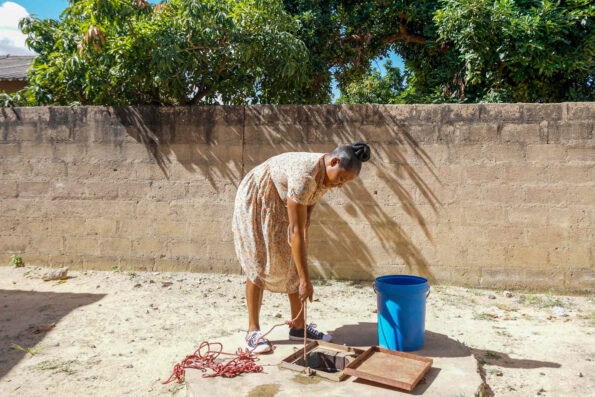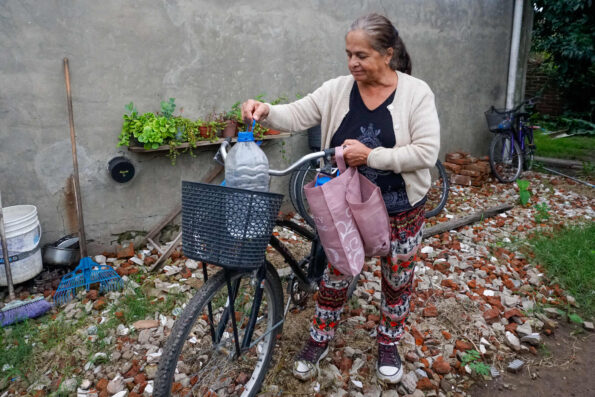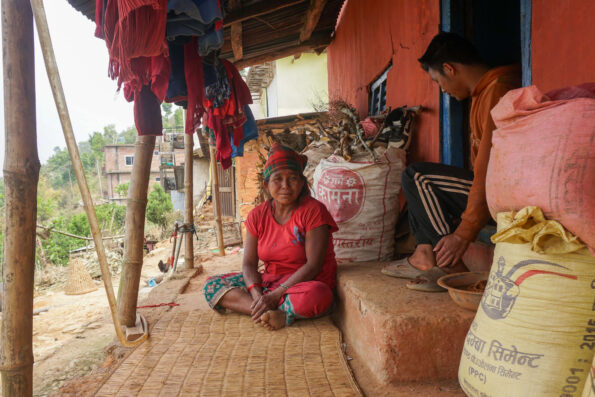
Patricia Lindrio, GPJ Uganda
A Ugandan coffee farmer shows how pests and drought have damaged his coffee plants.
MPIGI, UGANDA — Grace Afunadula grew up on a coffee plantation. He learned the trade from his parents and grandparents and felt compelled to follow in their footsteps.
“I joined the coffee business 17 years ago,” Afunadula says. “While it was not profitable for my parents, I felt I owed it to them to make it a success.”
Today, at age 44, he owns his own farm, a 4-acre (16,000-square-meter) plot in Mpigi, about 30 kilometers (19 miles) west of Kampala, Uganda’s capital, close to Lake Victoria. He grows a variety of crops — beans and potatoes in addition to coffee — in the flat, sandy soil.
Coffee is one of Uganda’s leading agricultural commodities, and Mpigi is one of the country’s main coffee-producing regions. But Afunadula continues to struggle with his crop. Surveying his farm, he points out troubling signs: stunted and dead plants, the result of coffee wilt disease, he says, a fungal infection that causes the plants to shrivel and die.
But even more challenging has been the unpredictable weather brought about by climate change — seasons of relentless rain, followed by periods when he has been forced to travel about a mile to Lake Victoria each day to fetch water for his drought-stricken crops.
“The bad seasons outweigh the good ones,” he says. “In a good season I can harvest 65 bags [of coffee beans]. In a bad one it goes down to 35 bags.” Each bag contains 50 kilograms (110 pounds) of coffee beans.
“I can no longer rely on the seasons as they were,” he says. “It rains when it should be dry, and it’s dry when it should rain.”



Such challenges are expected to continue. Coffee-growing areas in Uganda have become drier and hotter over the past three decades, according to the Uganda Coffee Development Authority, a public agency that oversees and promotes the country’s coffee industry. Unpredictable weather can cause massive economic losses for farmers, the agency says.
To address the problem of drought, the Ministry of Agriculture, Animal Industry and Fisheries launched the Micro-Scale Irrigation Program last year to help small-scale coffee farmers obtain irrigation systems.
This pilot program has begun with a group of 50 coffee farmers across the country.
“This is going to be a demonstration model for other farmers,” says Dennis Tumusiime, an engineer with the Agriculture Cluster Development Project, a partnership between the Ministry of Agriculture, Animal Industry and Fisheries and the World Bank, which is helping to implement the program. The government will contribute 75% toward the irrigation systems, he says.
Total funding for the project, Tumusiime says, is $150 million.
The World Bank is involved in irrigation projects around the world, many of which are designed to support small-scale irrigation development. In the Sahel region of Africa, it supports micro-scale irrigation in Chad, Burkina Faso, Mali, Niger, Mauritania and Senegal, says Keziah Muthembwa, a World Bank spokesperson. The organization provides funding, but also focuses on developing more sustainable water management programs.
In Uganda, the pilot program is focused on “smallholder” farmers — typically farmers who own less than 10 acres of land (about 40,000 square meters). But if it goes well, it could have a major impact.
That’s because smallholder farmers make up 85% of all coffee farmers in Uganda, says Emmanuel Iyamulemye Niyibigira, managing director of the Uganda Coffee Development Authority. The agency estimates that 1.7 million households grow coffee with a mean plot size of less than 1 acre (4,000 square meters).
“They are big payers in the coffee industry despite the challenges,” says Niyibigira. “Climate change is one of them.”
Coffee makes up 15% of Uganda’s total exports and accounts for the bulk of its export revenue, according to the development authority. Uganda is the birthplace of robusta coffee, and is the world’s fourth-largest robusta coffee producer and the eighth-largest coffee producer overall.
Between October 2019 and September 2020, the country exported more than 5 million bags of coffee worth more than $512 million. But the government wants to increase coffee production to 20 million bags a year by 2025.
That is an ambitious target, Tumusiime says, and the pilot program is relatively small right now. “This can only benefit 50 farmers in nine districts,” he says.
Still, it’s a start. With better irrigation, farmers can potentially double their coffee production, Tumusiime says.
For many farmers, however, the cost of setting up an irrigation system may still be beyond their means, despite the government support.
“Even if I was added on the program, there is no way I can raise the 25% today,” Afunadula says. He hopes to save enough money so that he can participate in the program in the future.
Junior Kunihira, a participant in the pilot program, believes the investment will be worth it. Even with the government covering 75% of the cost, obtaining the necessary irrigation equipment cost him 8 million Ugandan shillings ($2,183), more than 80% of his annual income. But he doesn’t regret participating in the initiative.
“I am very certain I will get my investment back,” he says. “I have seen it work on some of my colleague’s farms, and I cannot wait to see what the future holds.”
Patricia Lindrio is a Global Press Journal reporter based in Kampala, Uganda. She specializes in health and migration reporting.
Translation Note
Patricia Lindrio, GPJ, translated some interviews from Luganda.



